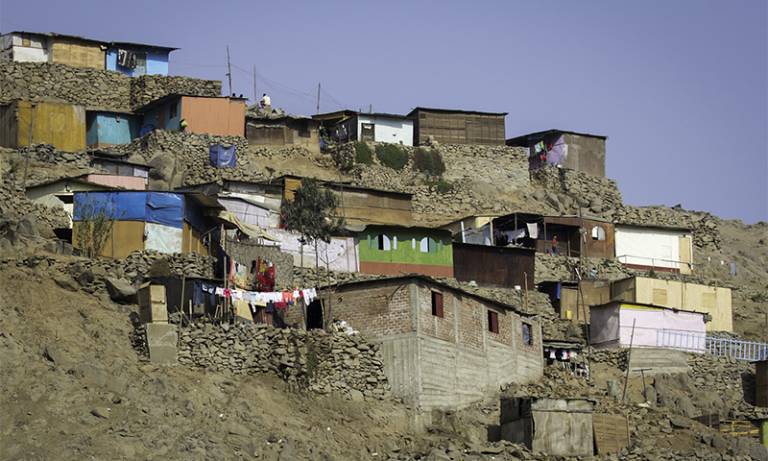An ambitious research programme to make cities fairer is funded by the GCRF
28 July 2017
Knowledge in Action for Urban Equality (henceforth KNOW) is an ambitious research programme that will bring together a global network of urban specialists working together to deliver cities for all.

KNOW is guided by the aspiration to produce more equal cities and focuses on three challenges: delivering prosperity, tackling extreme poverty and building resilient cities. With UCL’s Bartlett Development Planning Unit (DPU) at the forefront of a network of institutions across 9 countries, KNOW seeks to co-produce a combination of city-based research and partnerships of equivalence that will challenge the structural cause of inequality in contemporary cities.
KNOW is one of 37 interdisciplinary projects funded by the Global Challenges Research Fund (GCRF) Research Councils UK Collective Fund (http://bit.ly/GCRFgrowbrochure). Professor Caren Levy (DPU, UCL) will lead a global partnership to deliver transformative research and capacity for innovation in policy and planning that will promote urban equality. A consortium of researchers based at UCL, University of Durham, IIHS (Indian Institute of Human Settlements, India), Ardhi University (Tanzania) and FLACSO (Latin-American Social Sciences Institute, Costa Rica), KNOW will work with local academic and community-based partners in Sierra Leone, Uganda and Tanzania, Cuba, Peru, Costa Rica and Colombia, India and Sri Lanka. With a budget of over £7 million, KNOW will run to the end of 2021, creating a network of Urban Learning Hubs that will continue the work beyond the end of the project.
KNOW partners have received the project with enthusiasm and commitment to deliver this exciting and ground-breaking research:
Professor Caren Levy, Principal Investigator of KNOW says: “Achieving urban equality has become one of the key challenges of our time, as acknowledged in the United Nations’ Sustainable Development Goals. At a time when more than half of the global population lives in urban areas and the poorest people are the most affected by the global economic and environmental crises, reducing urban inequality will increase the prosperity and resilience of future cities in the global south.”
Professor Kombe, an internationally recognised urban researcher based at Ardhi University, Dar es Salaam, explains: “Our major role as local partners is to critically reflect on the transformations taking place in peri-urban areas with a view to explore alternative policy implications, as well as theoretical explanations. We will fully build on and work with the local networks we have engendered over years.”
Aromar Revi, Director, Indian Institute of Human Settlements, highlights KNOW’s emphasis on education and capacity building: “Jaipur is a remarkable historical city of 3m people that faces many of the current challenges that Indian cities try to address. Through this project we aim to understand what research capacity exists within the local environment, both inside and outside government, and then help build this capacity by facilitating life long learning processes that will be initiated by this project.”
Professor Jorge Peña Díaz, CUJAE, Universidad Tecnológica de la Habana, Cuba, explains KNOW’s emphasis on transformative action: “Havana is changing - and it is changing fast. We need to understand how the socio-economic transformation is going to impact the development of the city, especially for the vulnerable groups. We need to build the capacity to respond to this challenge.”
Somsook Boonyabancha, Asian Coalition for Housing Rights, highlights the importance of bottom up action to achieve KNOW’s objectives: “Community-led urban processes in Asian cities show that poor people themselves can make transformative changes, but we need to demonstrate this change at scale. The project will consolidate strategies between communities and local government for secure and affordable housing, and disseminate knowledge and capacities through the ACHR network.”
The Global Challenge Research Fund (GCRF) is a £1.5 billion research programme and forms part of UK Government’s Official Development Assistance (ODA) commitment of contributing 0.7% of GDP to international aid. The fund aims to ensure that UK research plays a leading role in addressing the global issues faced by developing countries. For more information please see: http://www.rcuk.ac.uk/funding/gcrf/
To learn more about the KNOW research project, the dedicated research page can be viewed here.
 Close
Close

